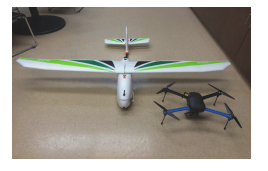Cost Comparison between Drone vs Traditional Surveying
Credit: 5 PDH Hours
Course Fee: $60.00
52 pages
How it Work!
- Register first and log into your account. Study and take the quiz for FREE until passed.
- After passing the quiz, follow the page, pay for the course and print your certificate.
Course Summary:

In the profession of Land Surveying, new technologies, such as the Total Station (Moffit and Bouchard, 41), Light Detection and Ranging (LiDAR) devices (Campbell and Wynne, 243), and Global Positioning Systems (GPS) (Campbell and Wynne, 393), are appropriately met with some level of skepticism. When first introduced, accuracy and precision are often compared to previously used and accepted technologies and practices to determine their scientific validity. Likewise, the introduction of Unmanned Aerial Systems (UAS) has undergone serious scrutiny regarding precision, accuracy, and therefore validity in surveying by surveyors and their clients alike. This skepticism is often countered by the claims of versatility and capability of UAS by their manufacturers and proponents. Nevertheless, studies are emerging that show that UAS is a viable alternative to traditional more costly surveying methods. For example, a recent study by McKim and Creed (2016) tested UAS to conduct UAS landfill surveys, and found that the data could be collected quickly, results were accurate to about 5cm, with less accuracy in vegetated areas.
Learning Objective:
The purpose of this study is to compare using UAS for surveying against traditionally accepted methods, so see if advantages exist in cost, time, and accuracy. One advantage of UAS that is universally acknowledged is the level of safety it can bring to the hazardous profession of aerial data acquisition. From 2003 to 2013, the Occupational Safety and Health Administration (OSHA) recorded 258 fatalities in the electric utility industry alone1, many of which involved visual inspections of electrical towers that could have been accomplished utilizing UAS. In 2014, there were five fatalities from accidents in manned rotorcraft, conducting similar visual inspection work.
Review the quiz before studying the course.
Course Content
Course Author: Franco F. Davati, P.E.
Certificate of completion of the course
This course comes with a multiple-choice quiz. You can view the quiz and take the quiz if you are logged in your account. You can take the quiz for this online PDH course as many times until passed. The passing grade is 70% and above. After you pass the quiz simply follow the page, to pay for the course and print your certificate instantly. A copy of the certificate and receipt for this course will always be in your account.
This online PDH course can also be used as a continuing education course for the following.
